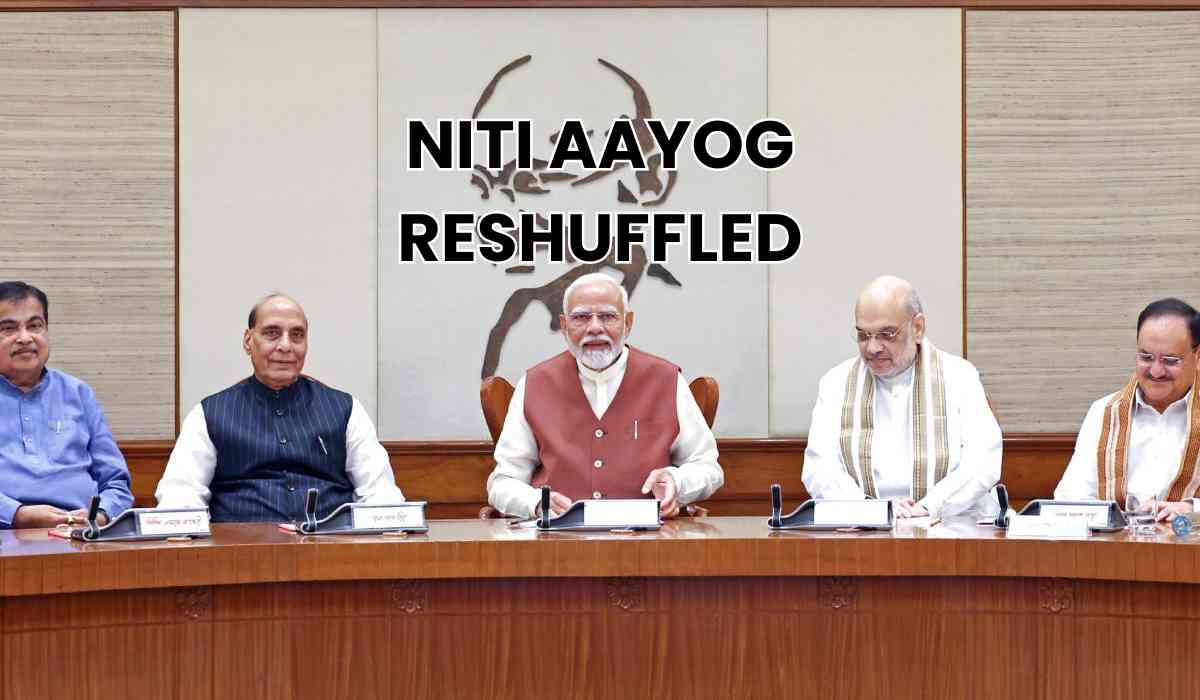The Narendra Modi-led NDA government has recently reconstituted NITI Aayog, introducing four full-time members and including 15 union ministers, including representatives from BJP allies, as ex-officio members or special invitees. This restructuring came on the heels of changes within the Council of Ministers.
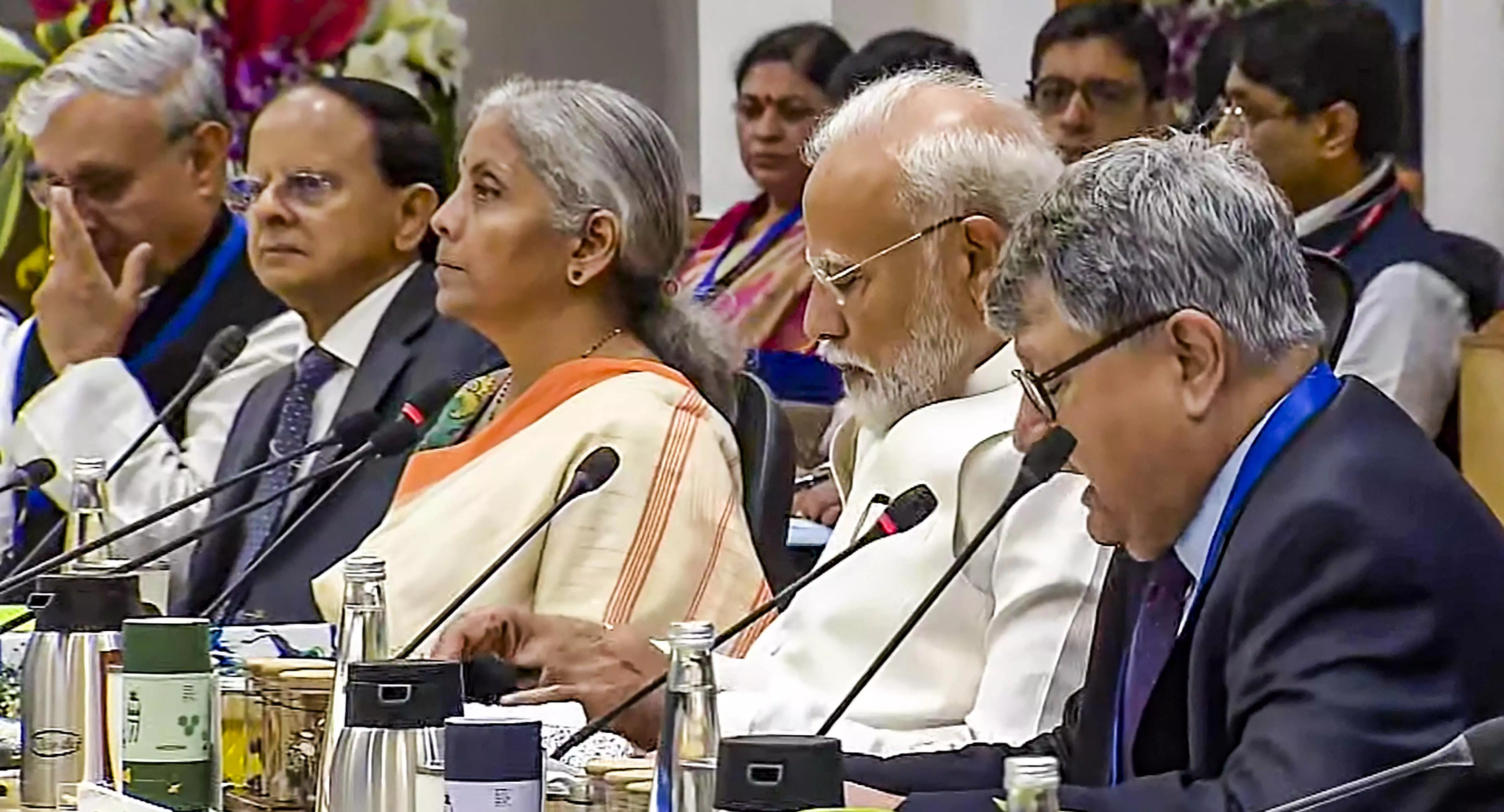
Composition of NITI Aayog
Chairman and Vice Chairman
-
Chairman: Prime Minister Narendra Modi
-
Vice Chairman: Suman Bery
Full-Time Members
-
VK Saraswat
-
Professor Ramesh Chand
-
Dr. VK Paul
-
Arvind Virmani
Ex-officio Members
-
Rajnath Singh, Minister of Defence
-
Amit Shah, Minister of Home Affairs and Minister of Cooperation
-
Shivraj Singh Chouhan, Minister of Agriculture and Farmers Welfare, and Minister of Rural Development
-
Nirmala Sitharaman, Minister of Finance and Minister of Corporate Affairs
Special Invitees
-
Nitin Jairam Gadkari, Minister of Road Transport and Highways
-
Jagat Prakash Nadda, Minister of Health and Family Welfare, and Minister of Chemicals and Fertilizers
-
HD Kumaraswamy, Minister of Heavy Industries and Minister of Steel
-
Jitan Ram Manjhi, Minister of Micro, Small and Medium Enterprises
-
Rajiv Ranjan Singh (Lalan Singh), Minister of Panchayati Raj and Minister of Fisheries, Animal Husbandry and Dairying
-
Dr. Virendra Kumar, Minister of Social Justice and Empowerment
-
Kinjarapu Rammohan Naidu, Minister of Civil Aviation
-
Jual Oram, Minister of Tribal Affairs
-
Annpurna Devi, Minister of Women and Child Development
-
Chirag Paswan, Minister of Food Processing Industries
-
Rao Inderjit Singh, Minister of State (Independent Charge) of Statistics and Programme Implementation, Planning, and Culture
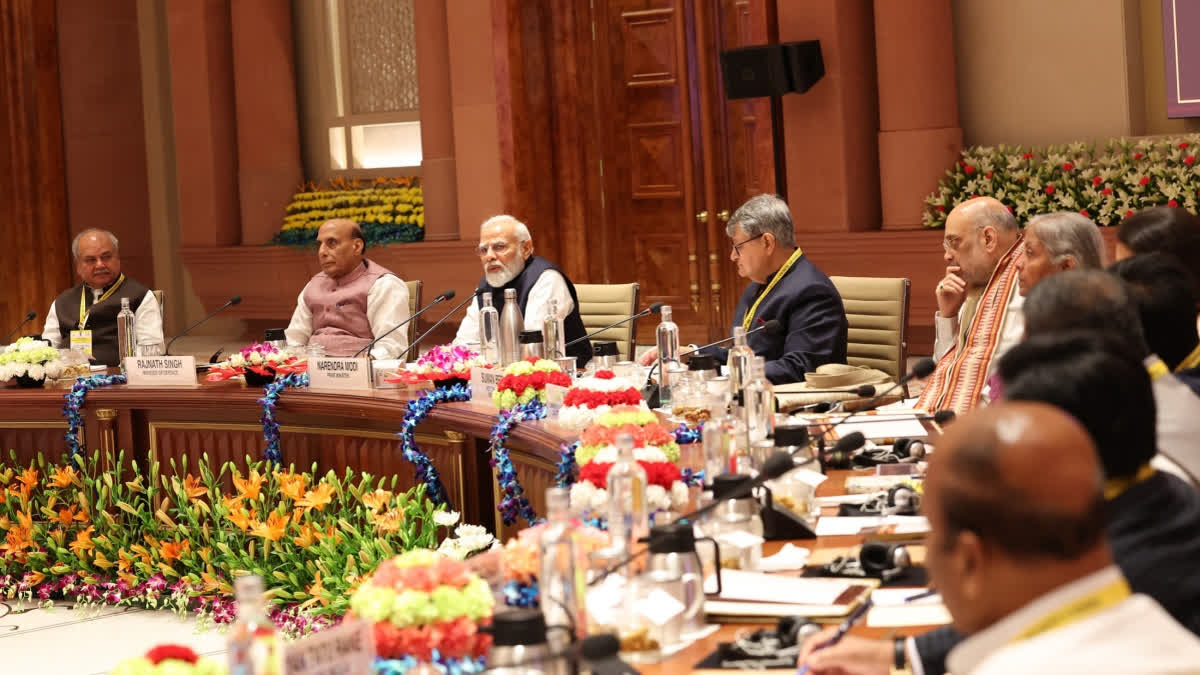
What is NITI Aayog?
The National Institution for Transforming India (NITI Aayog) was established in 2015, replacing the 65-year-old Planning Commission. The initiative was taken by the Modi-led Union government to foster innovation and bring contemporary ideas to the governance framework. NITI Aayog serves as the premier policy think tank of India, responsible for providing directional and policy inputs essential for the country’s development.
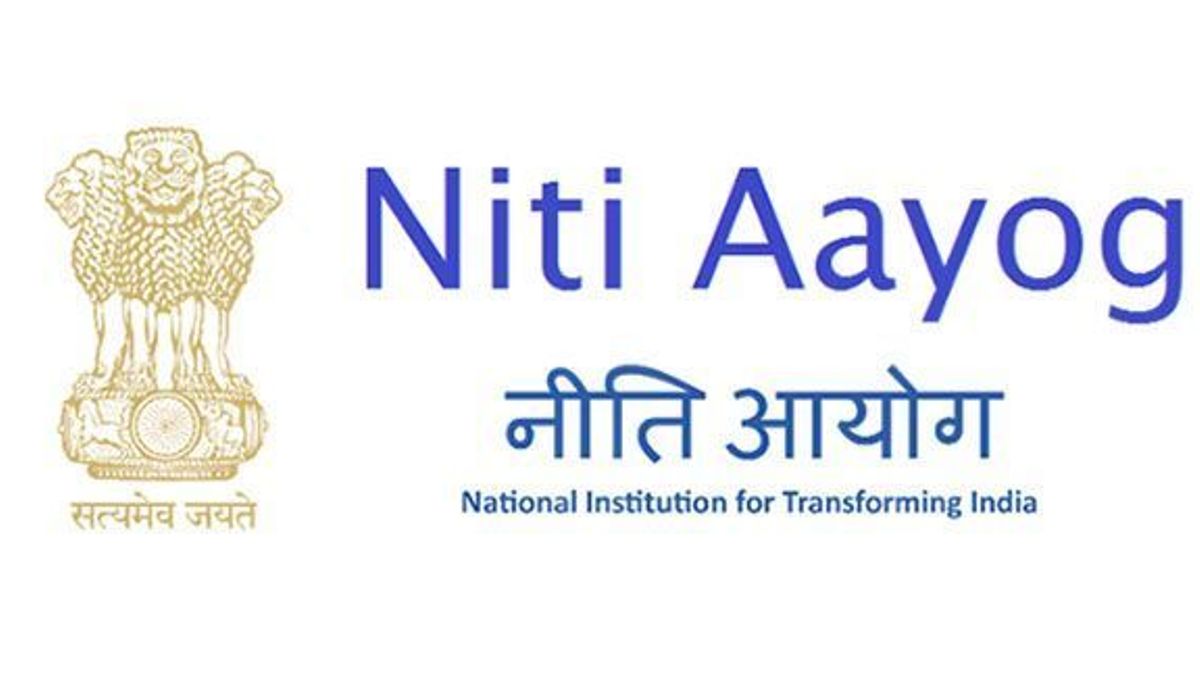
Key Roles and Functions of NITI Aayog
-
Strategic Planning: NITI Aayog formulates medium- and long-term strategic plans, emphasizing sustainable and inclusive growth.
-
Developmental Strategies: It designs initiatives in critical sectors such as agriculture, education, health, and infrastructure, ensuring alignment with national priorities.
-
Policy Monitoring: The Aayog monitors the effectiveness of policies and programs, offering evaluations and recommending necessary adjustments.
-
Research and Innovation: It promotes research and innovation to stimulate economic growth and development.
-
Cooperative Federalism: NITI Aayog enhances cooperation between the central and state governments in policy-making and implementation.
-
Targeted Initiatives: The Aayog undertakes special projects addressing specific developmental challenges and advancing Sustainable Development Goals (SDGs).
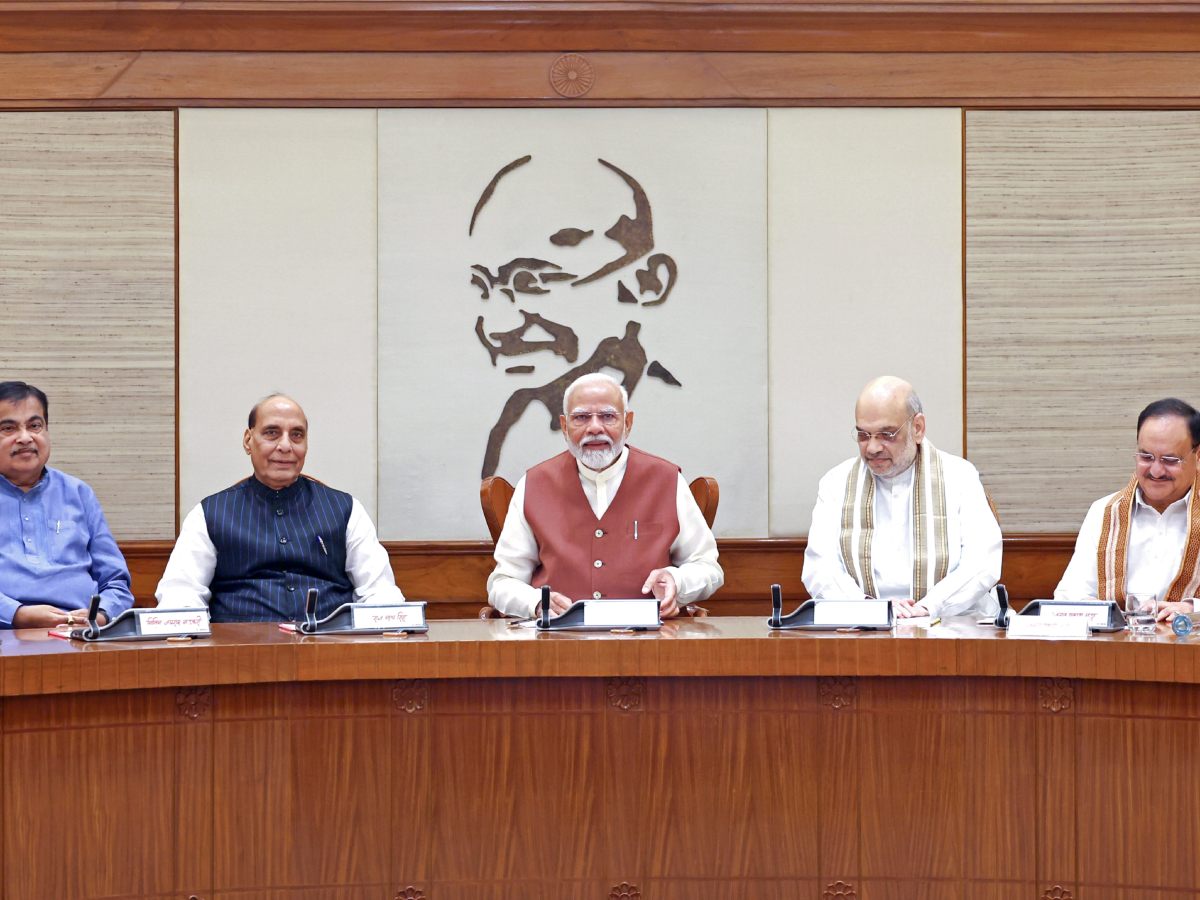
Objectives of NITI Aayog
-
Shared National Vision: Evolve a collective vision for national development priorities through active involvement of states.
-
Structured Support Initiatives: Foster cooperative federalism with ongoing structured support mechanisms for states, acknowledging the importance of strong states.
-
Grassroots Planning: Develop methods for creating credible plans at the village level, aggregating them for higher levels of governance.
-
Incorporation of Security Interests: Ensure national security considerations are integrated into economic strategy and policy.
-
Inclusive Growth: Focus on segments of society at risk of missing out on economic benefits.
-
Policy Frameworks: Design and monitor strategic, long-term policies and programs, utilizing lessons learned for continuous improvement.
-
Partnerships and Collaborations: Encourage partnerships among key stakeholders, think tanks, and research institutions.
-
Knowledge and Innovation System: Build a supportive system for knowledge sharing, innovation, and entrepreneurship through collaboration with experts.
-
Inter-sectoral Resolution: Provide a platform for resolving inter-departmental issues to expedite development initiatives.
-
Resource Centre: Maintain a state-of-the-art resource center for research on governance and sustainable development practices.
-
Program Evaluation: Actively evaluate program implementation, identifying resource needs to enhance success rates.
-
Capacity Building: Focus on technology advancement and capacity enhancement for program implementation.
-
Additional Activities: Undertake necessary actions to further the national development agenda and the aforementioned objectives.
NITI Aayog serves as India's premier policy think tank, guiding the country's development agenda through strategic planning, innovative policies, and inclusive growth initiatives. With a diverse membership and broad-ranging responsibilities, it continues to play a pivotal role in shaping India's future trajectory.
With inputs from agencies
Image Source: Multiple agencies
© Copyright 2024. All Rights Reserved Powered by Vygr Media.

